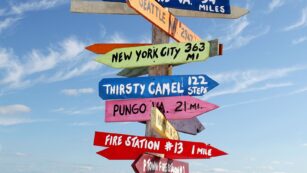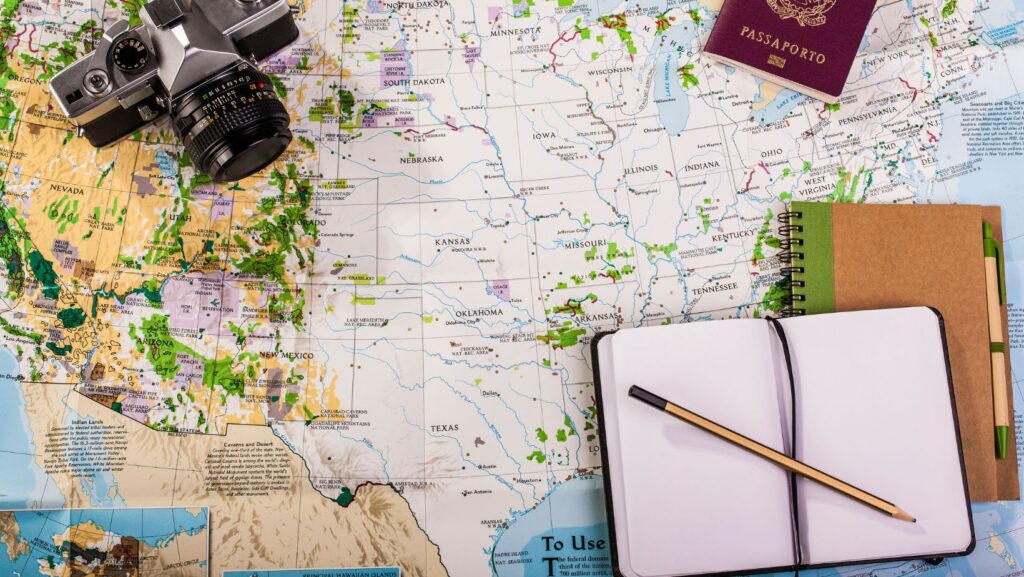Imagine embarking on an adventure without the hassle of planning or the worry of missing out on hidden gems. Free travel guides make this dream a reality, offering expert advice at no cost. They’re your passport to exploring the world, unlocking unknown territories and cultures.
Travel Guides Free
Benefits of Using Free Travel Guides
 Tourists frequently reap the benefits of free travel guides. With no additional cost, explorers obtain crucial trip details, local insights, and suggested itineraries. Free travel guides span the gamut from print brochures to digital platforms like websites, blogs, and mobile apps, providing multiple options for modern adventurers.
Tourists frequently reap the benefits of free travel guides. With no additional cost, explorers obtain crucial trip details, local insights, and suggested itineraries. Free travel guides span the gamut from print brochures to digital platforms like websites, blogs, and mobile apps, providing multiple options for modern adventurers.
-
Cost Savings: Free travel guides, as the name implies, come at no cost, thus saving travelers significant sums in planning expenses.
-
Expert information: Renowned travel experts often pen these guides, hence they offer dependable advice.
-
Suggested Itineraries: Free guides tend to include meticulously planned itineraries. They suggest what to see, where to eat, and when to visit for the best experience.
-
Local Knowledge: Free travel guides are a goldmine of insider information about local customs, top dining spots, and lesser-known tourist attractions.
Challenges and Limitations of Free Resources
Despite their apparent advantages, free travel guides pose certain challenges and limitations. Users must approach them, bearing in mind these potential drawbacks.
-
Lack of Customizability: A handful of free resources may not cater to specific preferences or interests. They may present a more generalized view of a destination.
-
Ads and Sponsorship: Some free guides may contain advertisements or be sponsored by businesses, influencing their recommendations.
-
Outdated Information: Free resources, particularly print editions, may contain outdated information if not updated regularly.
-
Quality Control: The quality of free guides can vary widely, from well-researched and expertly written to hastily compiled or unverified.
Key Sources for Free Travel Guides
Websites and Blogs
 The world wide web hosts numerous travel websites and blogs among its vast resources. These sites contain a plethora of free travel guides, enriched by individual experiences. Examples include TripAdvisor, Lonely Planet, and National Geographic Travel. They offer comprehensive details, including suggested itineraries, travel dos and don’ts, cultural insights, useful tips, and more. However, the quality of information might differ based on blog credibility, therefore, one must choose wisely.
The world wide web hosts numerous travel websites and blogs among its vast resources. These sites contain a plethora of free travel guides, enriched by individual experiences. Examples include TripAdvisor, Lonely Planet, and National Geographic Travel. They offer comprehensive details, including suggested itineraries, travel dos and don’ts, cultural insights, useful tips, and more. However, the quality of information might differ based on blog credibility, therefore, one must choose wisely.
Apps and eBooks
In this technology-driven era, free travel guide apps and eBooks signify a digital haven for travelers. Examples include Guides by Lonely Planet, Triposo, and Google Trips. These platforms provide a range of assistance: real-time navigation, restaurant recommendations, offline maps, and customized itineraries. Additionally, eBooks, like those published on Project Gutenberg or Open Library, encompass historical travel guides. However, limited internet connectivity can impede the functionality of app-based guides.
Government and Tourist Offices
Government and tourist offices frequently supply free travel guides. For instance, VisitBritain Shop or TouristInfo Barcelona supply an array of guides encompassing cities, regions, attractions, maps, and transport information. They also provide credible and up-to-date information, resulting in a reliable source for travelers. However, their guides focus mostly on the region they pertain to, limiting the breadth of information.
How to Choose the Good Free Travel Guides
Evaluating the Quality of Information
 Prioritizing the quality of information proves pivotal in the selection of free travel guides. A high-quality guide offers accurate, detailed, and easy-to-understand information on the destination. It covers diverse aspects such as accommodation, must-visit sites, local cuisines, transportation means, and cultural nuances, providing travelers with a comprehensive coverage of their trips.
Prioritizing the quality of information proves pivotal in the selection of free travel guides. A high-quality guide offers accurate, detailed, and easy-to-understand information on the destination. It covers diverse aspects such as accommodation, must-visit sites, local cuisines, transportation means, and cultural nuances, providing travelers with a comprehensive coverage of their trips.
One effective method to evaluate quality involves checking the authorship. Guides authored by well-respected entities like government tourism offices or reputable travel bloggers often carry more trustworthiness. Additionally, examining the depth and breadth of the content offers insight into the quality.
Finding Up-to-Date Guides
With the rapid-changing dynamics in the travel industry, up-to-dateness becomes a critical factor when choosing free travel guides. Guides should offer the latest information on things like current operating hours of attractions, upstanding restaurants, local safety measures, and any changes in transport routes or ticket prices.
Certain reliable sources to find updated guides encompass tourism boards’ websites, travel blogs with recent posts, and travel apps with regular updates. For instance, ‘Guides by Lonely Planet’ offers real-time updates, ensuring the travelers receive the most current information.




